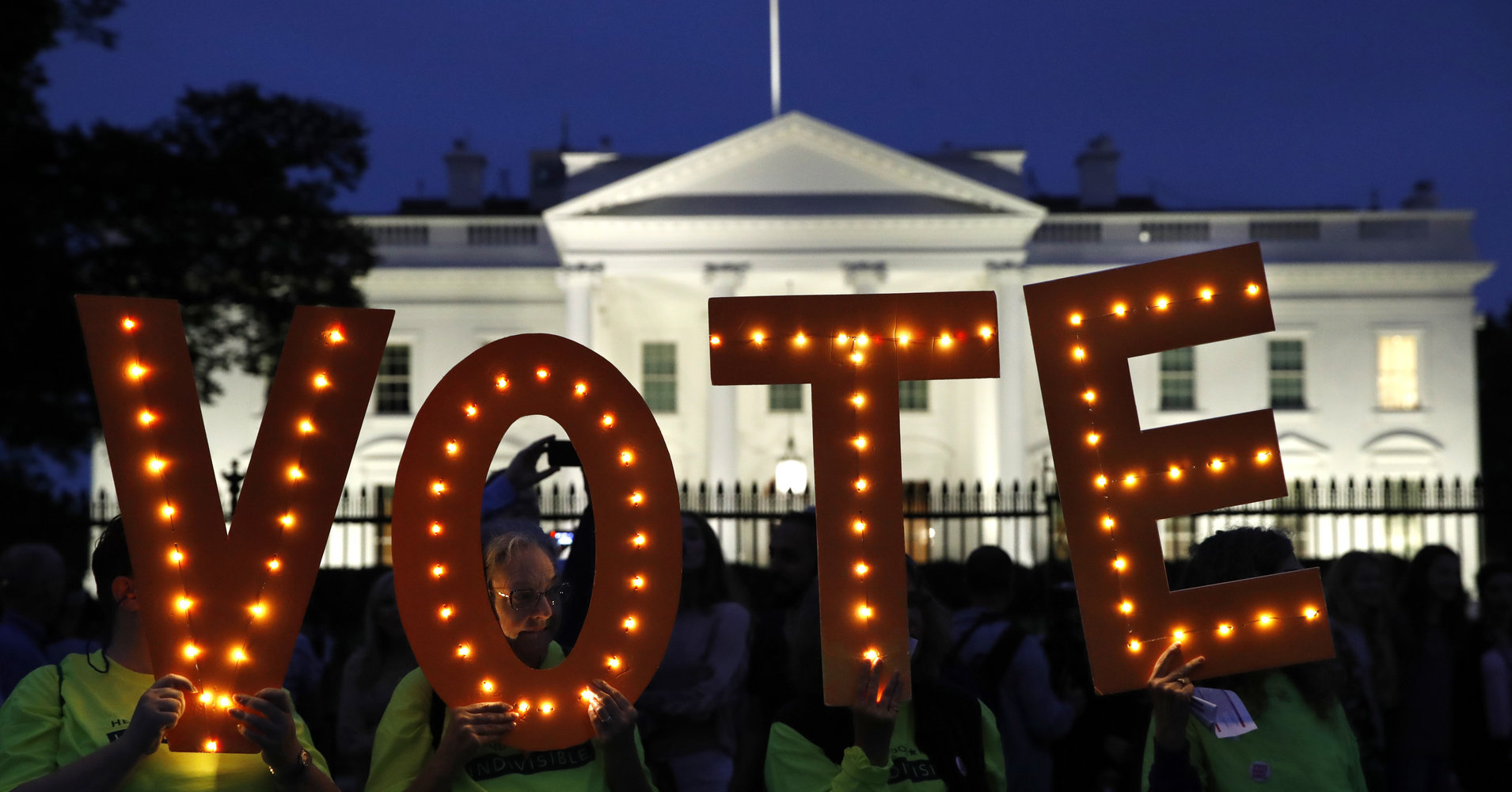[ad_1]
We are approaching Election Day for the 2018 midterms ― and a lot is at stake.
On Nov. 6, millions of Americans will head to the polls in the first midterm elections of Donald Trump’s presidency. It already promises to be historic, with more queer candidates and more women ― and particularly women of color ― nominated than ever before. Democrats are also hoping to take back control of the House and Senate from the Republicans.
Before you cast your votes, here are some major issues affecting all Americans that you should be informed about:
1. Climate Change
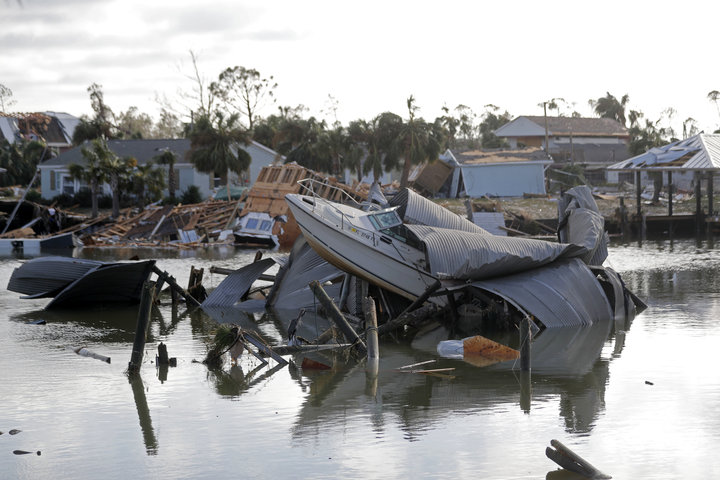
ASSOCIATED PRESS
A recent United Nations report laid out a dire warning that countries need to take swift action to scale back greenhouse gas emissions before the effects of climate change become irreversible.
Republican lawmakers were quick to dismiss the report’s recommendations as impractical.
Meanwhile, the second major hurricane in the span of a month hit the Southeastern U.S. While most scientists won’t attribute any single storm to climate change, the scientific community — including experts at the National Oceanic and Atmospheric Administration — has warned that human-driven global warming influences extreme weather events.
2. Immigration
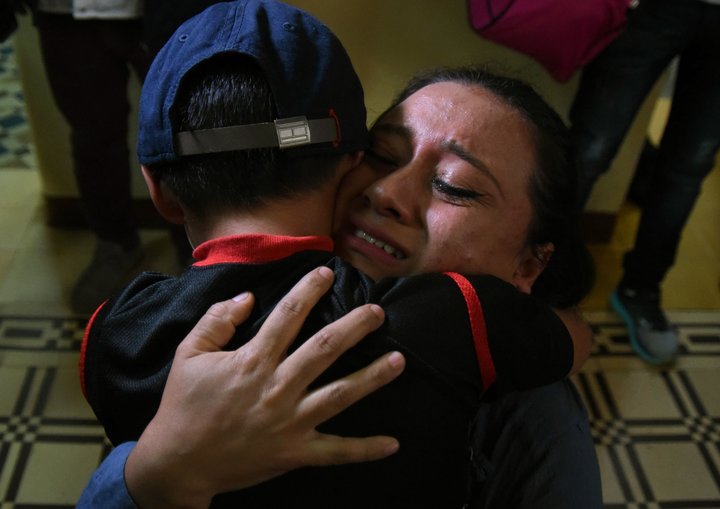
ORLANDO ESTRADA via Getty Images
The Trump administration recently separated around 2,500 immigrant children from their parents at the border under its “zero tolerance” policy. Weeks after a judge set a deadline to reunite the families, hundreds of children were still separated from their parents and in government custody, while many of their parents had been deported to their home countries.
Last month, the Trump administration said it planned to withdraw from a court settlement that bars the government from keeping migrant children in detention centers for more than 20 days and under inhumane conditions.
3. Health Care
More Democratic politicians have recently been pushing Medicare for all, or a national single-payer health care system, which not long ago was considered a radical left-leaning policy. Now several candidates are headed to Congress on platforms endorsing the policy, such as Alexandria Ocasio-Cortez (New York), Rashida Tlaib (Michigan) and Ilhan Omar (Minnesota).
Trump wrote an op-ed for USA Today this month in which he bashed the policy with dishonest statements.
4. Racism
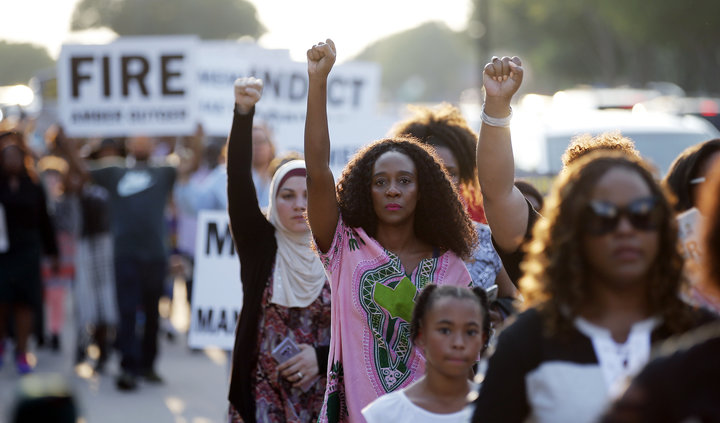
ASSOCIATED PRESS
Nearly half of voters think Trump is racist, according to a July Quinnipiac University poll. The president has a long history of racist comments and actions ― such as lamenting immigrants coming from “shithole countries” like Haiti and nations in Africa rather than from Norway.
Beyond the White House, racism continues to permeate everyday American life (shocker). White people keep calling the police on black people living their lives, and telling people of color to speak English. Cops are still shooting and killing black people ― even in their own homes.
5. Abortion
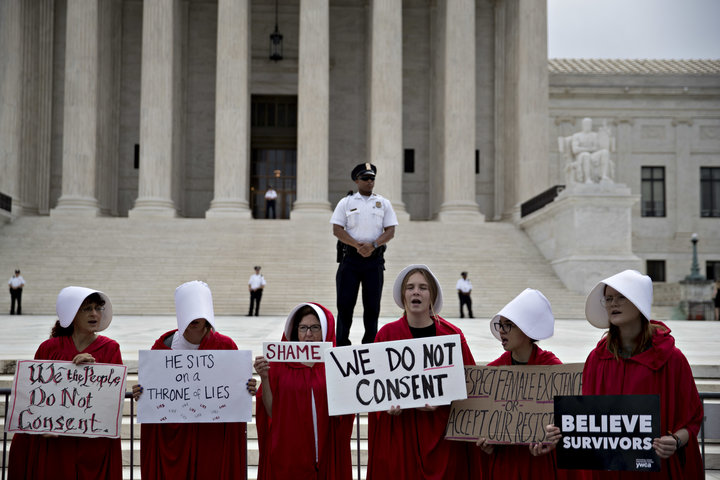
Bloomberg via Getty Images
Supreme Court Justice Brett Kavanaugh was confirmed despite credible allegations and testimony from Christine Blasey Ford that he sexually assaulted her in high school.
Even before the allegations came to light, abortion rights advocates had expressed concern about Kavanaugh’s nomination for the lifetime appointment, in which the social conservative would likely be weighing in on cases deciding key issues like abortion. Last year, the judge had opposed an undocumented teenager’s request to obtain an abortion while in federal custody.
6. Gun Control
It’s been eight months since the mass shooting at a school in Parkland, Florida, awakened a wave of activism around gun control ― and a national reckoning on racism and gun violence.
In Georgia, Democrat and gun safety advocate Lucy McBath ― mother of slain teen Jordan Davis ― is in an uphill race against a Republican incumbent in the gun-friendly state.
7. The Economy
While median household income has increased for Americans overall since last year, the nation’s poverty rate has stagnated. Nearly 40 million Americans are still living below the poverty line.
“At a time of economic recovery, when you’d expect to see some of those gains going to people who are struggling, they didn’t in 2017,” one expert told HuffPost last month.
The Trump administration also levied tariffs on billions of dollars’ worth of Chinese products, kicking off a trade war that could come at a cost for U.S. consumers and businesses. The administration then planned on distributing billions of dollars in aid to U.S. farmers to help protect them from the outcomes of trade battles with China, the European Union and more.
8. The Trump Investigation
Special counsel Robert Mueller is leading an ongoing investigation into whether Trump’s campaign colluded with Russia in the 2016 election and whether he obstructed justice.
In August, Trump said Attorney General Jeff Sessions “should stop this rigged witch hunt,” in one of several attacks on the investigation. Last month, former Trump campaign chairman Paul Manafort pleaded guilty to two charges involving a range of criminal conduct as part of a plea deal, and has agreed to cooperate with the special counsel’s probe. This is likely bad news for Trump and his 2016 campaign team — but could also cause problems for a bunch of lobbyists.
And the Mueller probe is just one of several investigations and lawsuits against the president.
9. Foreign Relations

ASSOCIATED PRESS
Trump has repeatedly alienated key U.S. allies ― and praised authoritarian regimes.
Trump has imposed steel and aluminum tariffs on Canada, Mexico and the European Union ― and even at some points threatened to “stop trading” with the nation’s closest allies.
Last year Trump also withdrew from the Paris climate agreement ― signed by more than 190 countries ― drawing criticism from close allies like France’s president Emmanuel Macron.
Meanwhile Trump has described North Korean dictator Kim Jong Un as “strong,” “talented” and a “very smart guy.” He applauded Philippines President Rodrigo Duterte for doing an “unbelievable job on the drug problem” ― while under Duterte’s crackdown, thousands have been killed extrajudicially. Trump also frequently praises Russian President Vladimir Putin.
10. Voting Rights
A number of states make it harder to vote with voter-ID requirements, early voting restrictions and the disenfranchisement of felons. Voter suppression disproportionately impacts low-income voters, young and elderly voters, and voters of color.
In Georgia, the state’s process for verifying voters’ information has jeopardized the applications of over 53,000 people, most of whom are black, per an Associated Press analysis. And in August, a majority-black county had to reject a plan to close nearly all of its polling places.
In Ohio, the U.S. Supreme Court ruled that the state could continue purging people from voter rolls, saying the aggressive process it used to do so did not violate federal voter protections.
In North Carolina, a federal court ruled in August that the state’s congressional districts violated the Constitution, because they were so gerrymandered in Republicans’ favor. But since the ruling came down so close to Election Day, the state likely won’t draw new maps before Nov. 6.
11. Housing
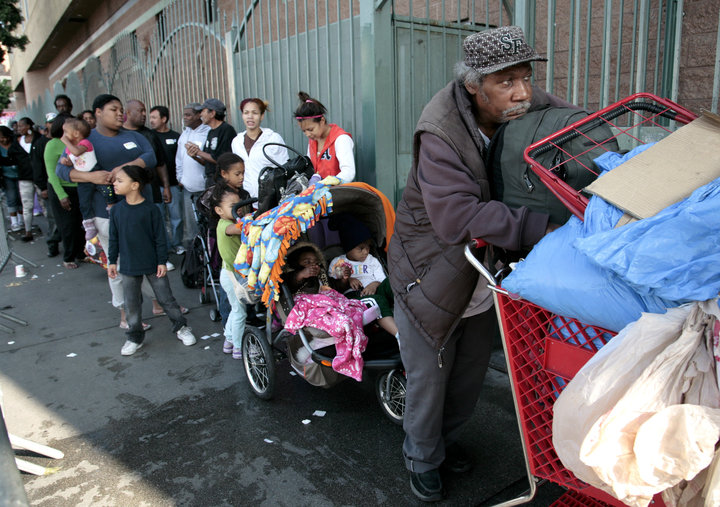
JASON REDMOND / Reuters
The lack of affordable housing is a major issue across the country, particularly in big, fast-growing cities like New York, Austin and the San Francisco Bay Area. But even smaller cities and rural areas are increasingly feeling the crunch of too-high rental prices.
And with less affordable housing comes gentrification ― or wealthier, often white people moving in to poorer neighborhoods, pushing up prices and displacing communities of color.
Meanwhile, the Trump administration killed an Obama-era rule meant to fight racial segregation and discriminatory practices in housing.
12. Education
The Trump administration’s Education Department said it will no longer investigate complaints from transgender students kept from using the bathroom that aligns with their gender identity.
The Department of Education also received hundreds of civil rights complaints last year involving students who say they were victims of racist school discipline ― all while U.S. Education Secretary Betsy DeVos considers revising or rescinding Obama-era guidance meant to protect students from racist punishments in school.
[ad_2]
Source link

